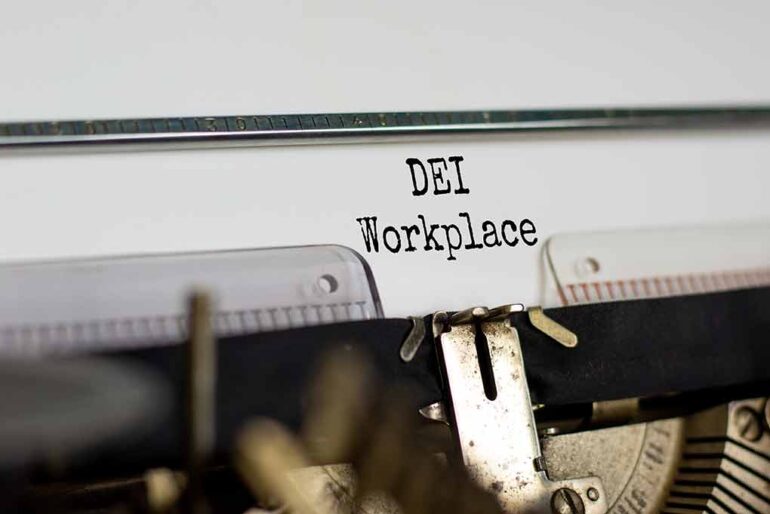🔴 Website 👉 https://u-s-news.com/
Telegram 👉 https://t.me/usnewscom_channel
Meta’s decision to terminate its Diversity, Equity, and Inclusion (DEI) programs signals a seismic shift in corporate America’s approach to workplace diversity, aligning with President-elect Donald Trump’s stance and leaving many questioning the future of inclusivity in tech giants.
At a Glance
- Meta ends DEI programs, including diverse hiring practices and representation goals
- Decision communicated through memo citing changing legal and policy landscape
- Move aligns with President-elect Trump’s views and broader tech industry trends
- Meta also terminates fact-checking programs on Facebook and Instagram
- Silicon Valley leaders, including Zuckerberg, show increasing alignment with Trump administration
Meta Abandons DEI Initiatives Amid Changing Political Climate
In a bold move that’s sending shockwaves through Silicon Valley, Meta has announced the termination of its Diversity, Equity, and Inclusion (DEI) programs. This decision, communicated through an internal memo from Janelle Gale, Meta’s vice president of human resources, comes as the tech giant navigates a rapidly changing legal and political landscape in the United States. The timing of this announcement, just before Donald Trump’s return to the presidency, has raised eyebrows and sparked intense debate about the future of workplace diversity initiatives in corporate America.
Meta’s decision to end its DEI programs includes phasing out the Diverse Slate Approach and abandoning broader representation objectives aimed at promoting diverse hiring practices. This move affects not only hiring but also training practices within the company. The tech giant will cut its DEI-focused team and cease pursuing specific representation goals that were previously in place.
“The legal and policy landscape surrounding diversity, equity, and inclusion efforts in the United States is changing,” Janelle Gale, Meta’s vice president of human resources, wrote in an internal memo obtained by Axios.
This shift in Meta’s approach to diversity comes despite the company’s previous success in doubling the number of Black and Hispanic employees in the U.S. ahead of its set goals. It also contradicts the recommendations of Meta’s own AI profiles, which have highlighted the need for more representative development teams.
Silicon Valley’s Rightward Shift
Meta’s decision appears to be part of a broader trend of Silicon Valley leaders aligning themselves with the incoming Trump administration. Mark Zuckerberg, along with other tech luminaries such as Jeff Bezos and Tim Cook, has recently visited Trump and made substantial donations to his inauguration fund. In a move that further cements this alignment, Zuckerberg appointed Donald Trump ally Dana White to Meta’s board.
This rightward shift isn’t limited to Meta. Other major corporations like McDonald’s, Walmart, Ford, and Lowe’s have also rolled back their diversity initiatives. Some companies have voluntarily ended DEI efforts, while others have faced pressure from far-right groups. This trend suggests a significant realignment of corporate priorities in response to the changing political climate.
The End of Fact-Checking on Meta Platforms
In addition to ending its DEI programs, Meta has also announced the termination of fact-checking programs for Facebook and Instagram. Instead, the company will shift to a “community note” system, similar to the approach used by X (formerly Twitter). This decision comes after criticism from conservatives who have long accused social media platforms of bias in their fact-checking processes.
Zuckerberg’s statement reflects a growing skepticism towards traditional fact-checking methods and a shift towards user-driven content moderation. This change aligns with the Trump administration’s stance on social media regulation and free speech concerns.
The Future of Diversity in Tech
As Meta and other tech giants retreat from formal DEI programs, questions arise about the future of diversity in the technology sector. While companies claim they will continue to pursue diverse workforces through other means, critics worry that without specific goals and dedicated programs, progress may stall or even reverse.
This sentiment echoes concerns raised by DEI critics who argue that such programs can be divisive. However, proponents of DEI initiatives contend that these programs are necessary to level the playing field and create truly inclusive workplaces. As the debate continues, the tech industry’s approach to diversity and inclusion will likely remain a contentious issue, especially as we enter a new political era under the Trump administration.

